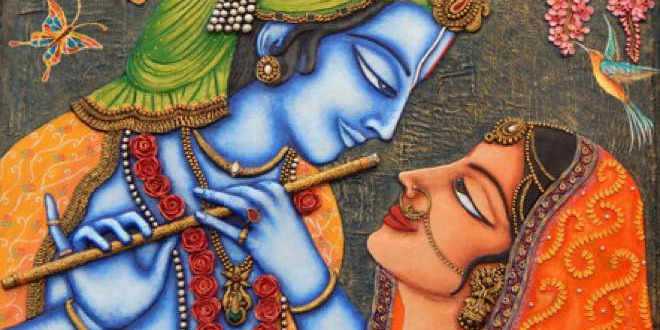Essentials of Hinduism
The World of Gods and Goddesses. Glimpse after glimpse.
A space pervades a jar both inside and out,
so within and beyond this ever-changing universe,
there exists one universal spirit.

QUALIFICATION:
Essentials of Hinduism
FEE: $695
ELIGIBILITY:
No pre-requisites, open to all
*Please be aware this course is NOT government accredited or CRICOS approved, so you will not be eligible for Austudy or a student visa.
** See also Terms and Conditions for Short / Non-accredited Course Enrolment
Hinduism includes many beliefs and traditions. Since Hinduism was the way of expressing meaningful living for a long time before there was the need for naming it as a separate religion, Hindu doctrines are supplementary and complementary in nature, generally non-exclusive, suggestive and tolerant in content.
Spiritual development occurs across many lifetimes as the spirit, soul or atman, which is a person's true self, is eternal, and goals should match the state of individual development of the individual. The meaning of life is intrinsically linked with the concepts of causal action or karma, the cycle of birth and rebirth, known as samskaraand liberation or moksha. Existence is conceived as the progression of the atman across numerous lifetimes, and its ultimate progression towards liberation from karma.
There are four possible aims to human life. These are known as the purusharthas and are (ordered from least to greatest): Kama, wish, desire, love, sensual pleasure; Artha, wealth, prosperity, glory; Dharma, righteousness, duty, morality, virtue, ethics; and Moksha, liberation from Samskara, the cycle of reincarnation.
Particular goals for life are generally subsumed under broader yogas (practices) or dharma (correct living) which are intended to create more favourable reincarnations, though they are generally positive acts in this life as well.
This course introduces us to a sacred world through rich and magical imagery of deities, symbols and mandalas. Personal meaning arises from understanding the wisdom behind this imagery. Thus a look at India's theology, deities, demi-gods, objects of worship, reverence and awe invites us to look deeply into what lies beyond our limited notions of what is real and what is unreal - beyond the ordinary realm of belief and doubt. In short, the goal is to realise the fundamental truth about oneself. We are invited to value and utilise all of our experience to free the mind and bring us to a very different way of seeing things.
COURSE TOPIC INCLUSIONS
Spiritual development occurs across many lifetimes as the spirit, soul or atman, which is a person's true self, is eternal, and goals should match the state of individual development of the individual. The meaning of life is intrinsically linked with the concepts of causal action or karma, the cycle of birth and rebirth, known as samskaraand liberation or moksha. Existence is conceived as the progression of the atman across numerous lifetimes, and its ultimate progression towards liberation from karma.
There are four possible aims to human life. These are known as the purusharthas and are (ordered from least to greatest): Kama, wish, desire, love, sensual pleasure; Artha, wealth, prosperity, glory; Dharma, righteousness, duty, morality, virtue, ethics; and Moksha, liberation from Samskara, the cycle of reincarnation.
Particular goals for life are generally subsumed under broader yogas (practices) or dharma (correct living) which are intended to create more favourable reincarnations, though they are generally positive acts in this life as well.
This course introduces us to a sacred world through rich and magical imagery of deities, symbols and mandalas. Personal meaning arises from understanding the wisdom behind this imagery. Thus a look at India's theology, deities, demi-gods, objects of worship, reverence and awe invites us to look deeply into what lies beyond our limited notions of what is real and what is unreal - beyond the ordinary realm of belief and doubt. In short, the goal is to realise the fundamental truth about oneself. We are invited to value and utilise all of our experience to free the mind and bring us to a very different way of seeing things.
COURSE TOPIC INCLUSIONS
- The living image
- The act of creation
- Contemplation, worship, transcendence
- The Vedic vision
- The great Godness
- Shiva, Vishnu, Brahma
- The major incarnations of Vishnu, Rama, Krishna
- The sons of Shiva
- Attendants of the Gods; enemies of the Gods
- Fabulous creatures
- The Natural World
- The Folk Shrine
- The Evolving Cosmos - all forms of the formless.
